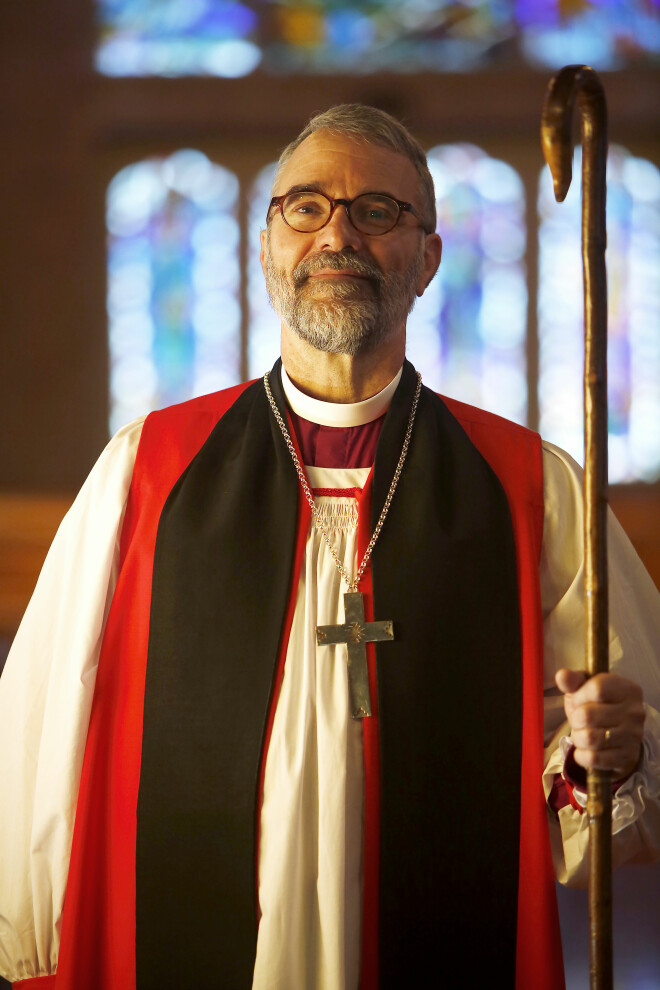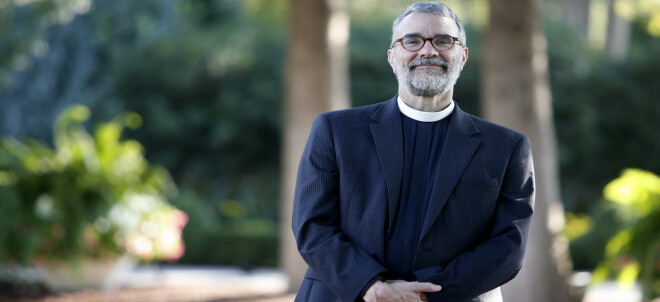Christmas Sermon

I am told that Molokai, in the Hawaiian chain, is the most beautiful of islands. The mountains, the deep blue bays, the forests sweet with guava and eucalyptus - it seems a kind of paradise. Into the bay sailed the ship, one day in 1863, with Father Damien, a Belgian priest of the Sacred Heart. The ship moored away from the shore, as those aboard feared the lepers quarantined in the colony and now gathered on the shore. Damien had to wade ashore. The sight must have taken him aback- people in turn wading out to meet him, a nose or ear gone, some without hands, others with faces maimed beyond recognition. In the next 16 years he shared their lives in every way. At the end of that period, on an Easter morning, he began his sermon, ‘we lepers…’ He had come to be with them, and finally to die as one of them.
What do you make of such a picture? It is not a little grotesque, especially amidst the festivity and cheer of Yuletide, though similar notes sound in our culture in Dickens or in the tale of good king Wencelaus. And of course the Christmas story is full of desperate refugees, genocide, imperialist control, and homelessness. Damien wading ashore to embrace and eventually to die with the maimed is a fitting image of the incarnation of God amidst his creation, the lepers being you and me. The unsettling nature of the image is true to the story.
But in response the angels sing their songs of glory. What does that mean? It acknowledges that what is occurring has significance far beyond that village and that time. God is addressing the rupture with his children for all time and for the whole world. It bespeaks the power and brilliance of his presence, though its form is the surprisingly helpless one of a child. Most of all it says that what has occurred is unutterably beautiful. That the transcendent and powerful would reach out and embrace the damaged and lost - just as there proofs of God by reason, or cases for God from ethics, would this not be the argument for God from beauty?
Obviously those who attend Midnight mass include the deeply religious, the episodically religious, the polite, those with family solidarity. We are in different places about what to do with the idea, indeed the possible reality, of God. But for each of us, the idea of the human heart longing does speak to us. We are built toward something unnamed and mysterious. But what is that yearning for? For truth, for forgiveness, for fairness perhaps. But this evening let us define it this way: would that we might somehow be perfectly known, seen fully as we are, perhaps better than we see ourselves, to be known in all that we imagine to be unloveable, that from which the other turns away - what if that is the thing we most want. In the Ingmar Bergman movie “Winter Light” the young woman holds her hands with a severe rash before her pastor, who has lots of opinions as shields by which he avoids seeing her. She takes the bandages off her rashed hands so that he is obliged to see her as she really is. What if the one toward which we yearn is the one who sees us wholly. Think here of how the apostle Paul likes to say that we will know God, or better yet be known by him. What we fear most, our unlovability, and what we want most, our being intimately and perfectly known, conspire in the Christmas gospel in the most beautiful thing there can be, and such beauty too is the telltale fingerprint of God.
The message of the incarnation of God’s son is our being truly known, and his dwelling unreservedly closely with us. God wades ashore as we stand surprised and marred on the beach. And of course the story in its larger frame reminds us that the one who approaches us made us, we are his, and he knows us, heals us, whose effects we come slowly to know. And at the very least God being the one who is close and sees us involves a change to how we tend to think about him, a rediscovery, which is what the discipline of listening to the word of God here every Lord’s day is about.
Much more could be said and tonight is not the occasion for an extended discourse. Maybe now in your life is the time to see if indeed the seeming silent cosmic indifference is actually not so, but actively seeking, nearing, and knowing you. Suffice it for this evening to say that the snippet of the gospel you have heard is a long tale of that divine search with a corresponding thrashing about and running away on our part. Read the bible anew in this light. Then the moment of God remaining God and yet entering our condition does not seem arbitrary at all. At the same time it is a spare, individual human moment with fallible characters, a story as risky and unlikely as ours. Incarnation is what we call the great intersection of the long divine pursuit and a Single fleeting moment, God's great entry, and that is why it speaks compellingly to each of us as well.
Those who sat in darkness have seen a great light, predicted the prophet 700 years earlier. At Christmas there were angels, windows into the world of spirit, the world suffused with the divine presence. And they sang about his glory, which means they adored him for his unutterable beauty. And that beauty expressed itself perfectly in his knowing and seeing and approaching us as we truly are, in love and without reserve. So often we make of religion either works to do, or political positions, or concepts, or even feelings of ours. Put this aside one evening in favor of adoration. Let the attention be all on the great brightness to which we are drawn, the indescribable beauty also personal. Let the only command or concept be “behold.” Allow this broken and disappointing world to be suffused in that light, in which, the Bible says, we are ourselves changed from glory into glory. Amen
Peace,
GRS




